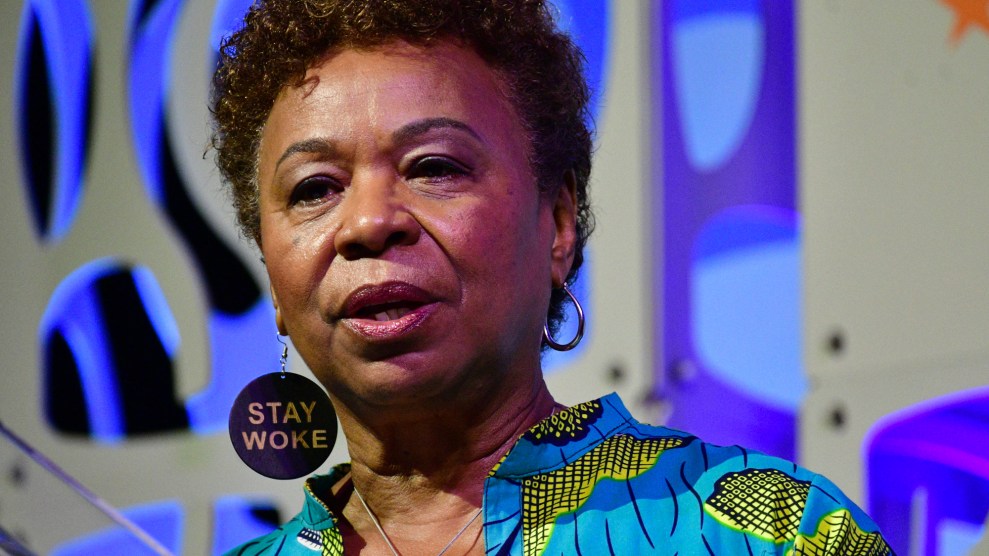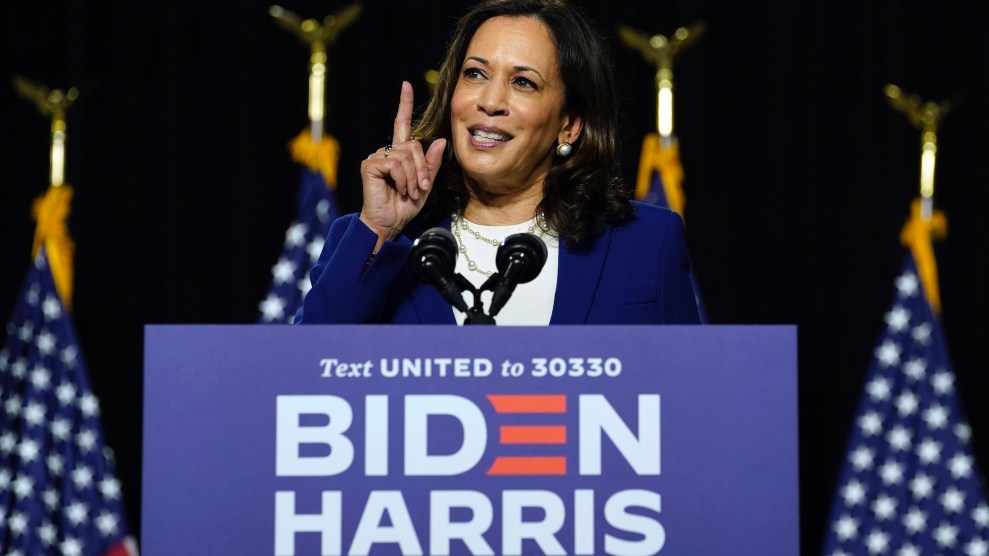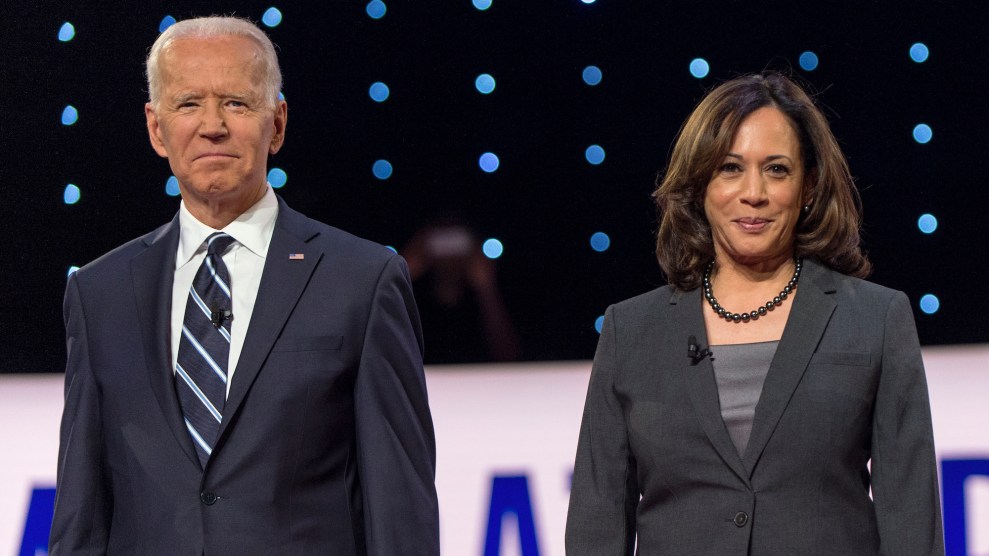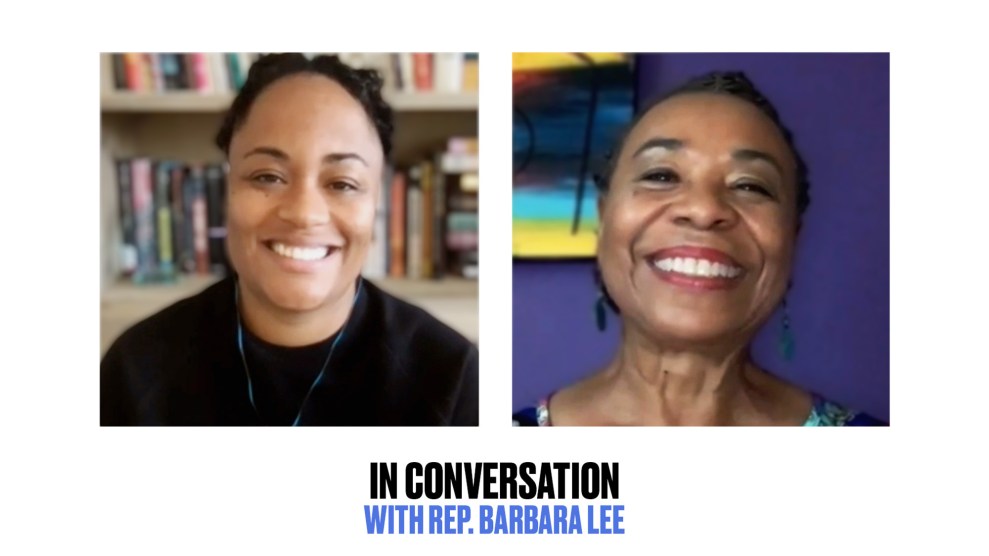
Bastiaan Slabbers/ZUMA
Rep. Barbara Lee is a big fan of fellow Californian Sen. Kamala Harris. Last year, Lee was the first high-profile politician to endorse Kamala Harris’ bid for the Democratic presidential nomination. After Joe Biden clinched the top spot in the Democratic primaries, the former vice president’s eventual choice of running mate was obvious, at least for Lee. “Kamala should be president,” she said last week in a livestream conversation with Mother Jones Podcast host Jamilah King, just days before Harris got the nod—but Veep was the next best thing.
“We know how to lead,” Lee said of Black women in the Democratic party, and beyond. “We know how to help regain the soul of America. And we have our unique history in this country to be able to lead out of the White House as president and vice president.”
When Joe Biden became the presumptive Democratic nominee for president this spring, he vowed to choose a woman to be his number two. Multiple candidates at the top of his short list were women of color. Black women are a demographic that’s powered the Democratic Party for decades—its “backbone,” Lee said. “Enough is enough. We’re here to stay. So just shut up.”
This wide-ranging interview also touches on Rep. Lee’s deep history in the fight for justice. She has insisted on a seat at the table at the highest echelons of political power for years, serving as one of the few Black women in Congress for nearly three decades. She worked on Shirley Chisholm’s campaign during Chisholm’s historic bid for the White House in 1972—a campaign after which Kamala Harris modeled her own. Now Lee is at work on Capitol Hill trying to get Republicans to deliver much-needed economic relief in a wrecked economy.
“We have 50,000 people who died from COVID who did not have to die,” she said. “This is a matter of life and death.”
You can also watch the full conversation, below:














